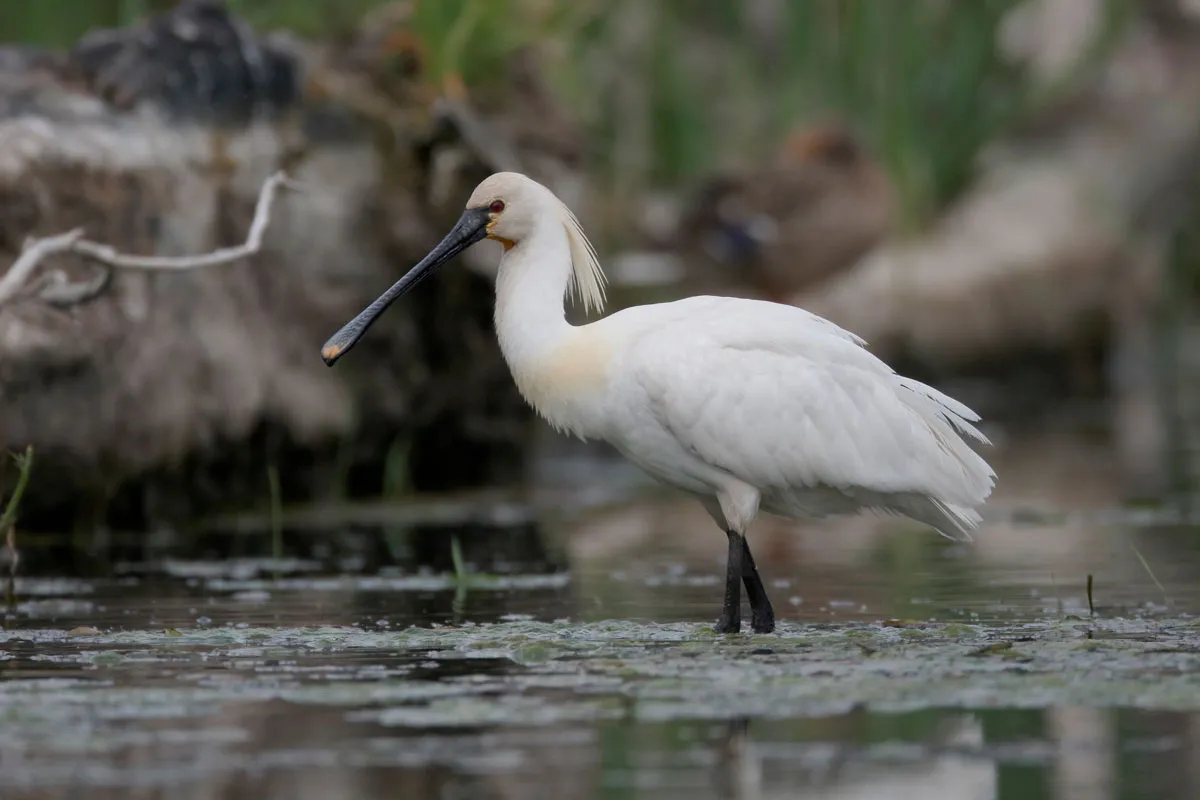The arrival of a nesting pair of spoonbills at RSPB Fairburn Ings, near Leeds, marks a first for Yorkshire, with the specially protected species kept secret until now to allow them to nest in peace.
The rare bird hasn’t nested regularly in the UK since the 1700s, with spoonbills usually found in Southern and Eastern Europe. However, records have shown an increase in small numbers along the east coast of England and East Anglia in recent years.

This new colony in Yorkshire is thought to represent a wider trend for wader birds moving north in search of more suitable habitat to make a home. This is thought to be the result of climate change, which has led to the destruction of their traditional nesting sites, forcing the birds to search further afield for suitable nesting places.
Great white egrets, cattle egrets and black-winged stills have all established colonies in the UK, as a result of climate change impacting their European nesting sites.
Senior Site Manager at RSPB Fairburn Ings, Darren Starkley said: “To see the long spatulate bill and gangling legs of a spoonbill in the UK us a magnificent sight, but to have a pair successfully nest on our site is extra special.
"We have occasional spoonbill sightings at Fairburn Ings- some travelling from as far as the Netherlands and Spain, but none have successfully nested before, and never on an RSPB site. This success is really down to the hard work of the staff and volunteers at Fairburn helping these species adapt to the changing environment.”
Holkham National Nature Reserve welcomed the return of eight breeding pairs of Spoonbills in 2011, with the coast thought to provide an ideal nesting site for the rare species.
